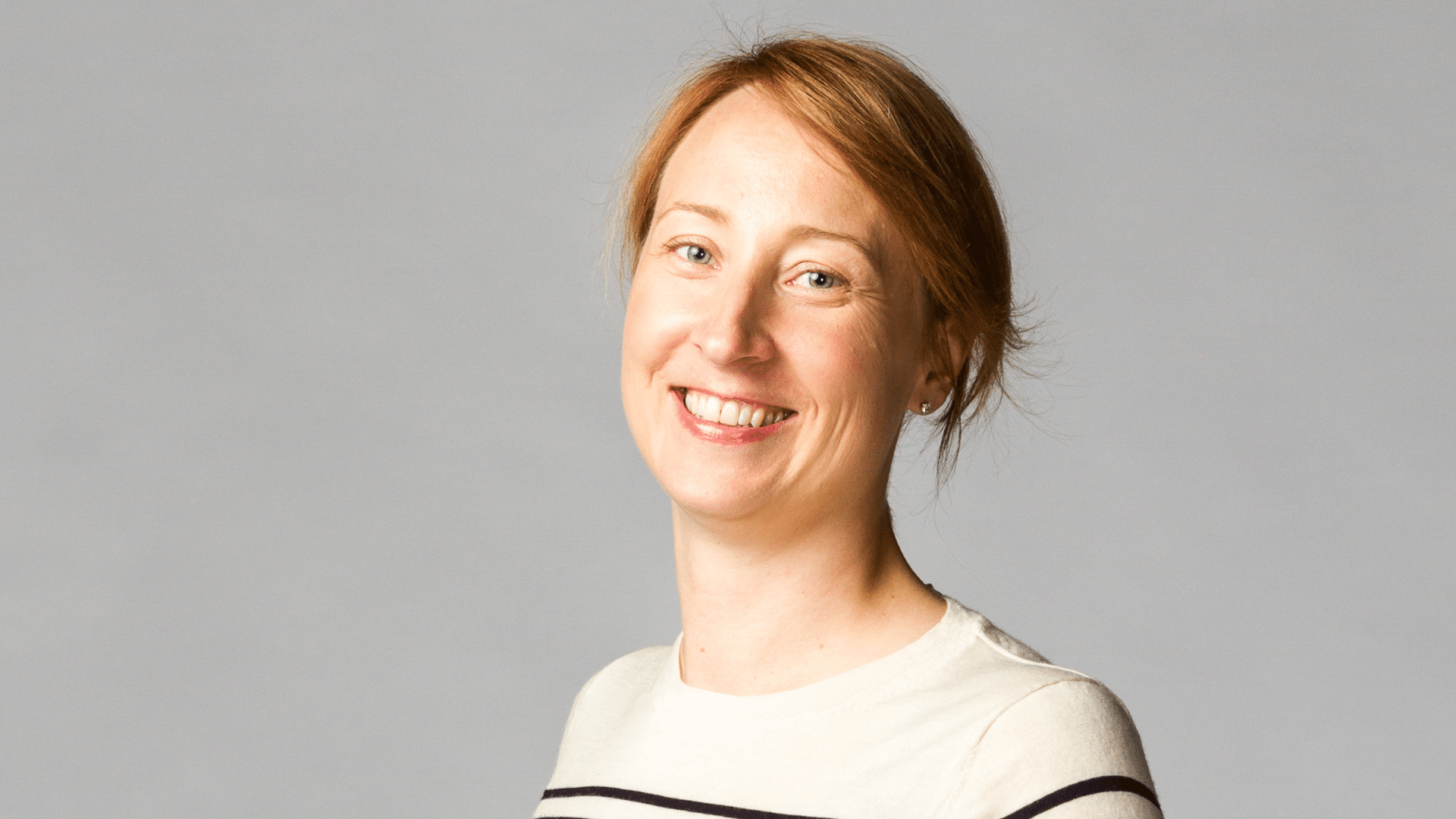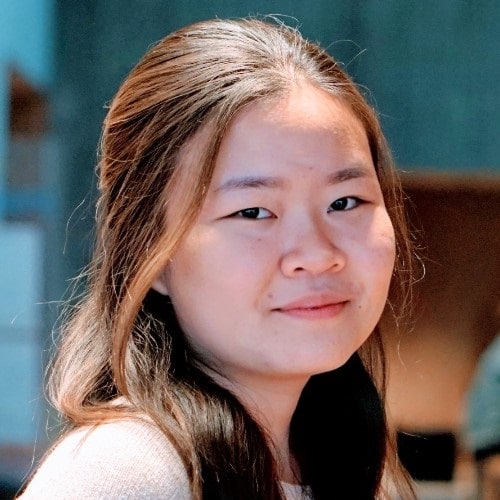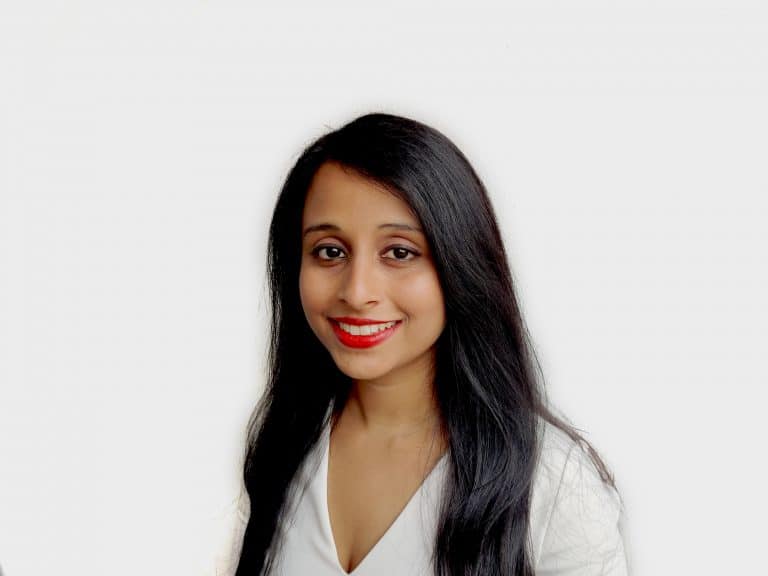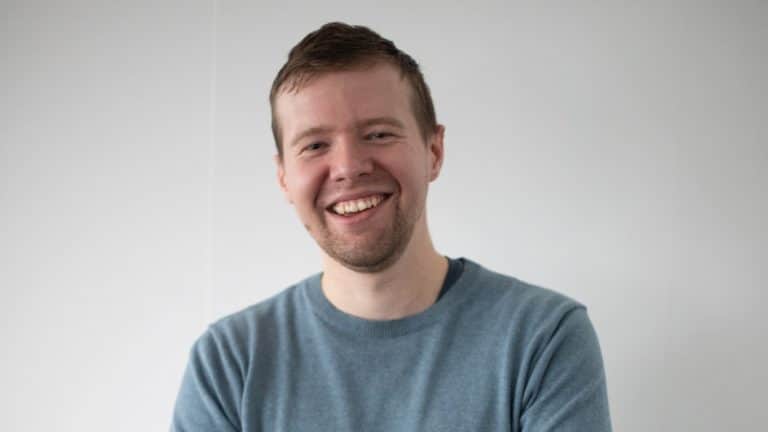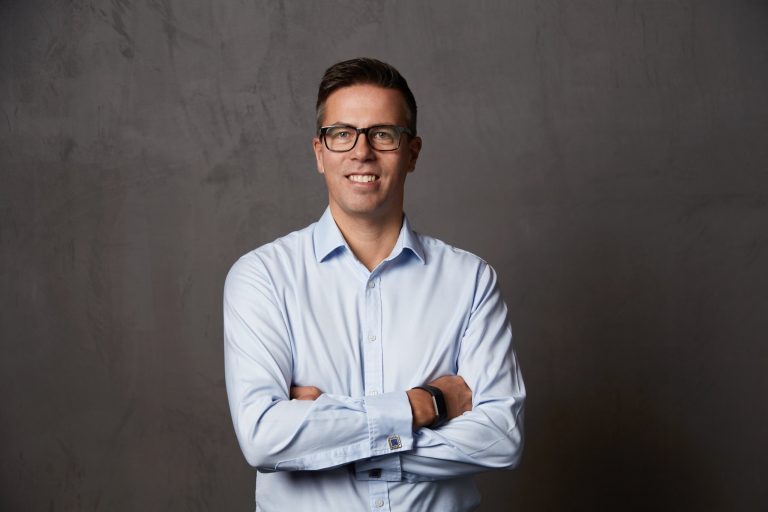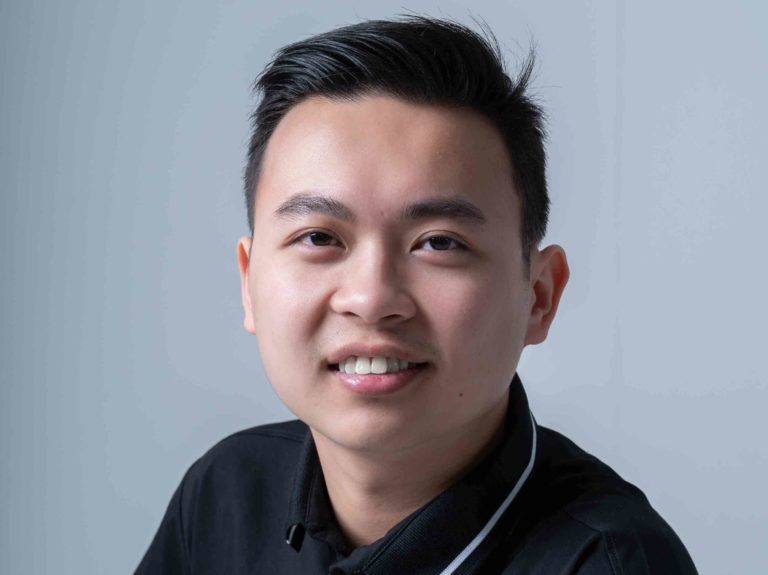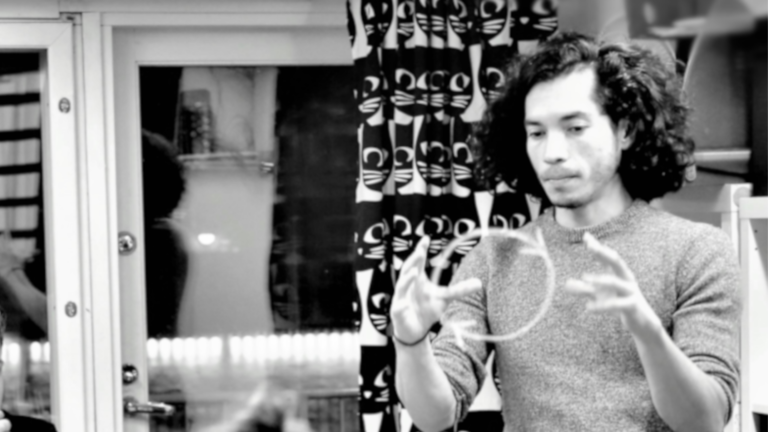I grew up in a small town thinking big
I grew up in Jääli, near Oulu in northern Finland. I have a sister, who’s two years older than me. Jääli was a pretty close-knit community and a very safe environment to grow up in, and we knew nearly everyone who went to school with us at least by name. Some of my best friends today are people I started the 1st grade with.
I was a very inquisitive child, always interested in something new. I especially loved travelling and learning about different cultures.
I grew up thinking anything’s possible, and I think that’s extremely important. I’m quite sure had I wanted to become an astronaut, my parents wouldn’t have tried to convince me otherwise. If kids are taught to not pursue their dreams, they’ll never know what they’re capable of. Anyone can do a lot if they’re not limited by thinking they can’t.
Wanting to avoid working 9 to 5 led me to work 24/7
I don’t remember having a dream job when I was a kid, but I do remember wanting to have a job that came with “enough” free time. Later, during my corporate career, I learnt that it wasn’t easy for me to stop working when I was off the clock. I kept thinking about work in my free time, trying to plan or solve something that didn’t solve itself during working hours. I took my job seriously, in hindsight maybe a bit too seriously, always wanting to do my best and really make a difference.
I became an entrepreneur as the result of many things, and I think it’s fair to say that how everything unfolded left me a little cynical about corporate life and eager to try and do something on my own.
Working as an entrepreneur often means sacrificing your free time, and this was certainly true for me. I’ve worked through Easter, Midsummer, Christmas and New Year’s Eve – having late-night meetings, travelling or producing different deliverables, and I don’t remember even once thinking it was objectionable.

The meetings were interesting, the travelling was for a reason, and the deliverables were steps along the way to a specific goal. Now that the nature of my work has changed and meeting deadlines can be better planned, I don’t have to permanently be on call and can even take time off when needed. Last year, we had our first summer holiday as a family in seven years. Work was still on the agenda, but it didn’t take centre-stage.
I thought you needed a ‘big idea’ to become an entrepreneur
After graduating from University with my 1st degree, I started working for Nokia. My job revolved around the UI texts used in different mobile phone models, in all the different languages that Nokia supported. In just a few years, Nokia went from publishing a few phone models per year to 50 per year, and the number of supported languages grew to nearly 100.
During the 12+ years I ended up working there, I often contemplated doing something else instead, but never came up with the kind of ‘big idea’ I thought I needed to branch out.
After my partner and I welcomed our first child, I wanted to devote my time to doing something that I felt passionate about, which didn’t include my old job.
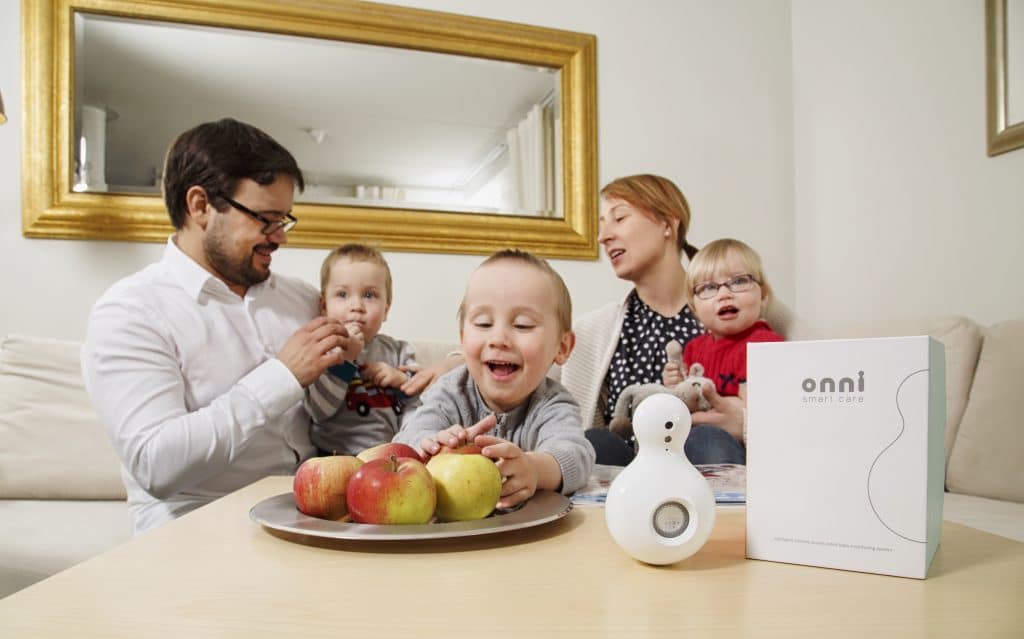
The decision to become an entrepreneur preceded the decision of what to do.
In front of us an open road
When my maternity leave ended, a new organisational reshuffle was in the works. I chose to not apply for a position in the new organisation and took the available exit package instead.
Less than two years later, in the aftermath of the Nokia mobile phone business sale to Microsoft, Microsoft announced mass layoffs with most positions affected hailing from the division I used to work in.
Me leaving Nokia ended up coinciding with my partner’s exit from a start-up, and so there we were: proud first-time parents looking for a business idea.
Difficult with a chance of success
Being an entrepreneur is – at the risk of sounding simplistic – difficult. Even those who seemingly quickly achieve financial profitability have had to work for quite some time to get there. Overnight success is an oxymoron – succeeding in anything requires planning, preparation and execution.
Having grown up with an entrepreneur parent, I knew entrepreneurship wouldn’t be easy, but it could be rewarding.
Market research is more important than innovation
I believe that if you don’t do research, you can’t innovate. I also think that innovation is often defined too narrowly. It’s still an innovation if you substitute something, like fake fur for fur, or combine things, like a trolley with a suitcase, or adapt something, like a bra for nursing, or modify something, like an espresso maker with a more sleek design, put something to a new use, like memory foam for a dog bed.

What helped us get started was doing proper market research. We visited different international trade shows ourselves, asking a lot of very direct questions and receiving incredibly open, revealing and informative answers. We learned about the market, competitors, solutions and trends. With our newly acquired knowledge, we were able to make more informed plans and seek specific help from people who had done it before.
What also helped on a very practical level was the available public funding. Before we started, we secured funding for the first 12-18 months, which was essential to be able to start. Initial funding, as we later understood, isn’t intended to cover the whole product development process, but to enable piloting the product/service concept among the intended target customers. This is the sensible way of doing r&d, although it doesn’t – of course – guarantee commercial success. Nothing does, but you can do a lot to mitigate risks.
I’ve since specialised in different funding mechanisms, acted as an expert evaluator in the European Commission’s Horizon 2020 scheme, and offered services in Business Finland’s Expert Search portal aiming to help Finnish SMEs launch or expand in international markets.
Qualified and certified
Because funding was so important going forward, I wanted to really understand the evaluation process and characteristics of a ‘good’ funding application, and that’s why I sought to become an expert evaluator in the Horizon programme. I’ve since successfully applied what I’ve learned to secure funding both for my own endeavours as well as tens of other companies.
It’s kind of a side point, but I’ve since sought to become certified in different things I was already qualified in and had working experience from. Becoming certified in different things has helped me expand my knowledge, hone my skills and build credibility.

I have specialist qualifications in foreign trade and corporate management and I’m a digital sales and marketing specialist and a copywriter. I’m currently participating in a certified board member/chairman of the board program, and it’s proven to be a real eye-opener. So much that can be done to facilitate smart goal-setting, progress-monitoring and decision-making.
There are studies that show that what motivates people the most in the long term is not the money but the challenge and the opportunity to keep learning, and I certainly subscribe to this belief. There’s a lot of uncertainty that goes with what I do, but for me, the learning opportunities and the freedom to choose outweigh the disadvantages.
You only fail if you stop trying
I don’t think I’ve ever really had a role model as such, but I do respect entrepreneurs who’ve succeeded, especially when the odds are stacked against them. To me, success doesn’t just mean making a profit but accomplishing set goals and doing your part in bringing about some kind of a change for the better. If you fail to do something you set out to do, it’s not a total loss unless you stop trying.
I’ve been lucky enough to receive support for my endeavours, most importantly from my life partner with whom we also became business partners, but also from my family and friends.
My father, who’s now officially retired but who seems always to have a couple of projects he’s working on with additional ones being thought about has also been a valuable sounding board for ideas and decisions. I’ve learned that many businesses actually have the same problems in common and that a software company can learn a lot from a construction company, and vice versa.
Having your spouse as a business partner
I started my journey with my partner, and although there are many positives to working together with your spouse, it doesn’t always work out.
Working together means you spend a lot of time together. In our case, we were together quite literally 24/7. It helps if you’re good friends to start with, and it’s necessary that you’re on the same page about what you’re doing.
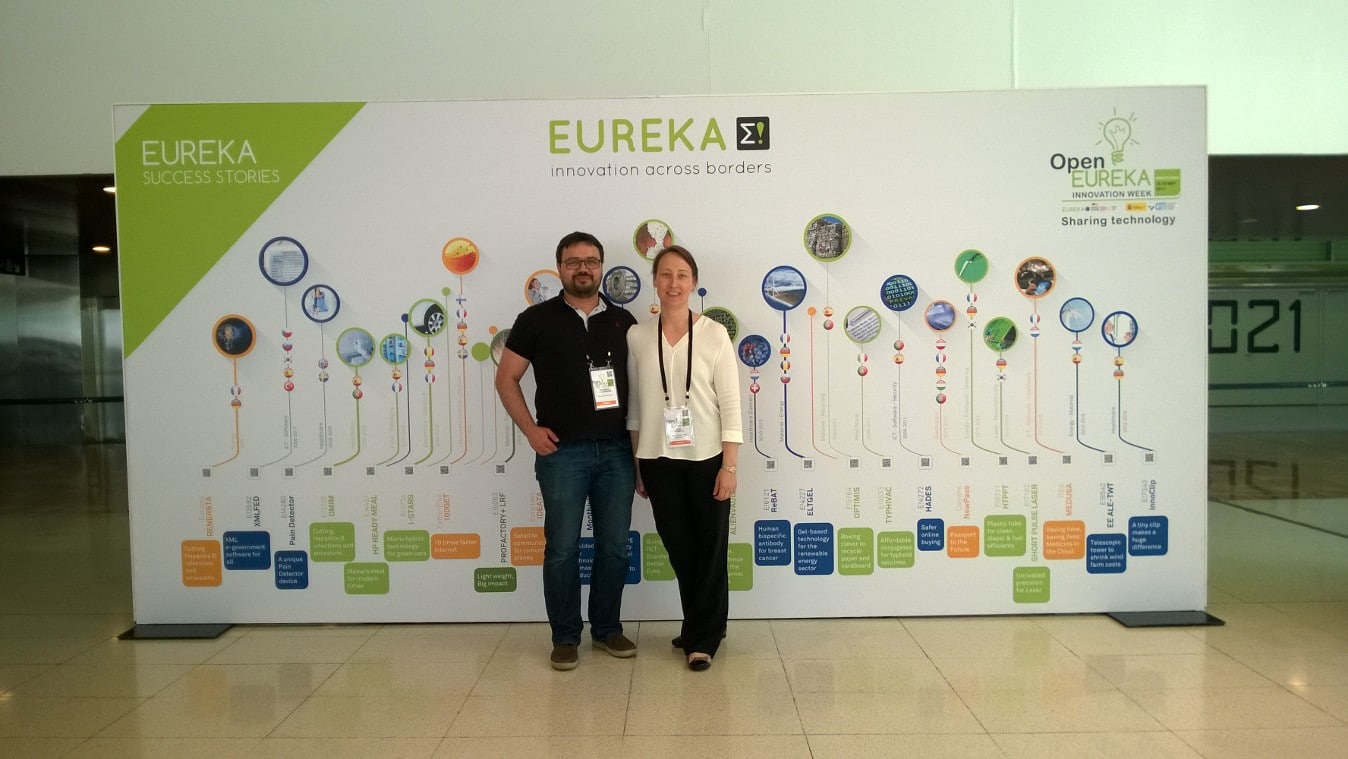
I think we’ve both developed a greater respect and admiration for each other seeing new work skills and talents being put to use. We’ve also seen each other learn and grow as a professional.
We’ve developed ideas, we’ve made plans, we’ve shared the workload, we’ve travelled around the world, and we’ve experienced many achievements together. At the best of times, working together has been exciting and fun, and it’s brought us even closer together.
Overworked, overtired and overwhelmed
At the worst of times, we’ve been overworked, overtired and overwhelmed, we’ve taken on too much without enough resources, we’ve not agreed on a direction to take, we’ve taken a lot of risks and we’ve had to face mistakes, failures and losses. And we’ve done all this while raising three small children.
We’ve learned to plan meticulously, delegate effectively, execute efficiently and communicate constantly. We’ve gotten through some difficult times, and are now more equipped at effectively working together.
What was in my mind when I started was a heartfelt desire to create something that would help other parents, based on our own experiences as parents.
‘One size fits all’ parental advice is at best useless, and at worst harmful
We had experienced first-hand how baby care experience results in baby care confidence, and that by tracking our child’s daily routines, we were able to stay on top of everything that was going on as well as anticipate what’s next. Later, when our family grew with twins, we realised that because every child is different (and because even twins are different), ‘one size fits all’ advice is at best useless, and at worst harmful.
Because information is only useful if it’s available at the right time and if it meets the parents’ present needs, we set out to monitor babies’ day to day activity, long term development, growth, safety and wellbeing, and provide parents with the right information at the right time.
Upcoming development plans included adding intelligence to the system
In the end, we created a remote access video monitor system paired with services designed to enable parents to see and hear their child anytime, anywhere, with any connected device and stay on top of what’s going on, both on a daily basis and in terms of the child’s long-term growth and development.

The system was designed to also enable securely sharing select information with different user groups, for example making it possible for parents to allow the grandparents to have a peek or for healthcare professionals to review feeding data. Upcoming development plans included adding intelligence to the system to enable giving targeted, development-stage specific advice and product recommendations that could support the child meeting their next developmental milestone.
Why most products fail
Product development is a process of taking an original product idea from concept to market, spanning the stages of ideation, research, planning, design, development, testing, manufacturing, marketing and launching, and each stage comes with their own challenges.
We’ve faced many obstacles on our journey, which to a degree are part and parcel of doing
R&D. An estimated 80% of new products fail*, and the biggest reason for failure is lack of preparation (*). Not preparation in terms of designing, developing and manufacturing the work, but preparation in terms of properly assessed market opportunity.
In our case, the market opportunity was and still is clear and present, but we took on too much. Strategically, we could have accomplished more by committing to less.
Trust your instincts
Some issues could have been avoided by better planning and trusting our instincts, but some were the result of unexpected, unforeseen, unusual and even unlucky events.
Now in hindsight, it’s possibly tackling the obstacles that have taught us the most. I’d like to think the saying ‘smooth seas do not make skilful sailors’ is descriptive of our journey as well.
Our first domestic customer was a Finnish insurance company, our first international customer was a UK distributor, our first ‘big’ deal was with a Benelux distributor, and our first non-European endeavour was a joint venture in Hong Kong. Our first awards were international design awards and I’m most proud of having received the European Commission’s and high-quality project proposal award – twice. We accomplished a lot, although the project ran out of funding and we had to put everything on hold and think about how to go forward.
Feedback from the end customers is what really matters, the rest is window-dressing
To me, what’s been especially rewarding is the feedback we’ve received from parents and to-be-parents, grandparents and childcare and healthcare professionals.
Although it’s been nice to have received different kinds of seals of approval based on business potential or technology merit from various respected authorities or global brands, superficial rewards can also distract the ego.

For us, a start-up, winning various awards enabled exploring new business opportunities, but they also helped with marketing. Because the life of a start-up is often such a struggle, it’s important to celebrate the small victories, but dangerous to start chasing them.
Losing faith when facing delays
On the hardship side, it’s been frustrating how some people have failed to see the potential or lost faith when there have been costly delays. It’s also been difficult on a personal level when things haven’t gone as planned, and if you don’t believe in what you’re doing anymore, it’s a tall order to expect others to.
The available public funding in Finland is focused on the research and development stage, and sales and marketing support is limited. This means that if you manage to complete the R&D phase, which nearly half of IT projects do – late, over budget, and only partially meeting their goals – you still have a whole other mountain to climb to market and sell what you’ve got. It’s like you get to the mountain top and chill the champagne to celebrate your success, only to see the summit on the next mountain over.
Learn from the mistakes of others – you don’t have enough time to make them all yourself
If a company fails with plan A, it’s difficult to qualify for further funding to pursue plan B. If further funding can’t be secured, the company is at risk of losing everything that’s been achieved, including all the knowledge and experience gained.
According to a 2017 Finnish study, 50% of companies seize operations within five years of having been founded. There’s a lot that could be learned from these attempts that could help others fare better.
Mechanisms could also be put in place to ensure that when companies do get funding, they know how to get the most out of it.
It’s not just once or twice that I’ve heard that companies have splurged out on business class travel just because they’ve gotten a grant.
Better tax incentives would help many companies
There are no tax breaks to companies employing people and instead, there’s significant, mandatory costs associated with doing so. Also lacking are better tax incentives for anyone investing in companies.
With many EU countries offering alternative national funding for pre-vetted, European Commission’s expert-evaluated projects, I think there could be many benefits to Finland offering something similar, especially because Finland is in the top ten of countries according to expenditure on R&D as a percentage of GDP, and the majority of projects fail at least partially.
Don’t confuse a product with a business
There are many lessons I’ve learned, and among the most central ones is that no one knows what will succeed or not. There are too many variables at play, and in the end, it’s the customers who decide. With that said, if the problem is rooted in marketing fails, you can try again. In fact, it’s often needed to try and launch multiple times.

I’ve also learned that you shouldn’t confuse a product with a business and that you should always be willing to partner with others.
Becoming a freelancing entrepreneur can be an easier start
With so many investors requiring a company to hold patents even if they can be circumvented and defending them isn’t feasible or even possible, I wasn’t completely wrong when I thought you needed a ‘big idea’ to become an entrepreneur. I’ve since learned that there’s more than a type of an entrepreneur.
Becoming a freelancing entrepreneur might have been an easier start, but if that’s not how you started, you can always scale back and pivot. Options definitely become more evident over time, and as the result of trying something and learning from it.
A vehicle for constant professional growth
My favourite aspect of being an entrepreneur is three-fold: it’s a vehicle for constant professional growth, it provides unique opportunities and life experiences, and it enables making an impact on people’s lives.
On the other side of the scale are the endless lists of things to do, the limited hours in a day, having to have at least a working knowledge of various things affecting your business, having to persevere when it’s tough, having to constantly worry about potential problems, and having to deal with also unpleasant things.
Passion over profit
I think that if what you’re doing doesn’t give you a sense of satisfaction and if you’re motivated by the prospect of making money or earning a higher status, you’ll sooner or later find that it’s not for you.
Being an entrepreneur isn’t for everyone. People are different. It’s not good or bad to be one, but it is important to recognise if it’s for you. If it is, keep going, if it isn’t, try something else. I can’t imagine working for someone else at this point but I’ve been around the block enough times to know to say “never say never”.

My work-life balance is much better now than it was a year or two ago, and I’d say that today, being an entrepreneur affects my personal life positively. I get to spend a lot of time with my family and arrange free time flexibly.
My passion is to make products or services that help people, and consulting is a way to enable that. It took me years to learn that.
Emphaty for the people
I’m more empathetic to people’s problems, and I’ve learnt to compromise and take other people’s perspectives into account.
Also, my kids remember us having to travel quite a bit for work at some point as a positive thing – they remember the happy reunions and not the tears when leaving. As a result, I don’t take anything for granted, and I know what counts the most. I think it’ll be valuable to teach them the importance of doing what they love, and knowing that as much as successes shouldn’t go to their heads, failures shouldn’t go to their hearts.
Trust but verify
When team members or collaboration partners trust each other, they tend to not monitor on-going activities as meticulously as they would if the trust was lacking. As a result, if there’s ‘too much trust’, awareness of each other’s activities may be clouded, which in turn may affect both the performance and the process. If work mode is independent, trust is important, but monitoring is paramount.

The top three skills for a successful entrepreneur in my opinion are strategic thinking, time management and resilience.
Curiosity, efficiency, communication skills and financial understanding are all important, but if you lack strategic thinking, you don’t know how to most effectively use the resources available to you in trying to advance the company toward its objectives.
It’s not the number of times you get knocked down that count but the number of times you get up
Time management is needed to help ensure you prioritise, delegate, stick to a schedule, take breaks and take care of your mental and physical wellbeing. Entrepreneurs are at a higher risk of burnout, which comes with a range of negative, psychological, behavioural and/or social consequences. Early detection and mitigating measures are extremely important to keep it from becoming chronic.
You need to be resilient so that the inevitable obstacles, challenges, problems, trials and tribulations you’ll undoubtedly face don’t keep you down. It’s not the number of times you get knocked down that count but the number of times you get up.
Assess what happened, learn from it, and take advantage of a new perspective. See, think, do, adjust and repeat.
Featured photo by Tanja Lipponen

